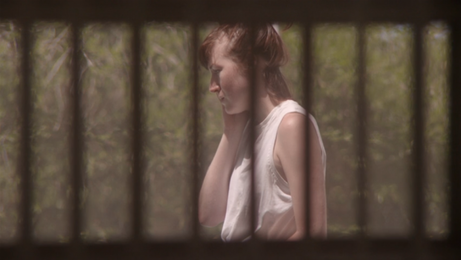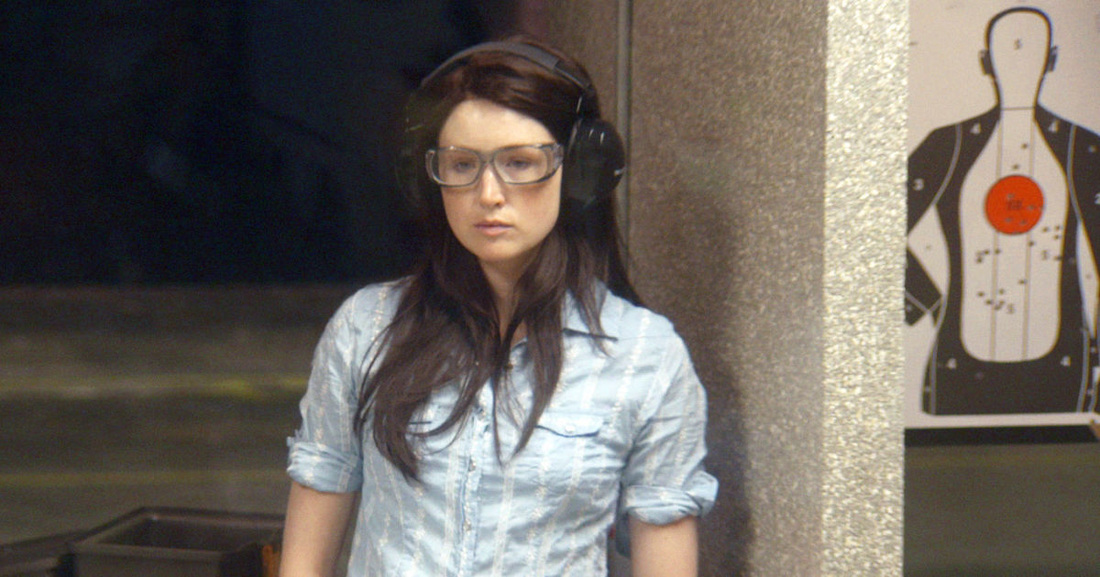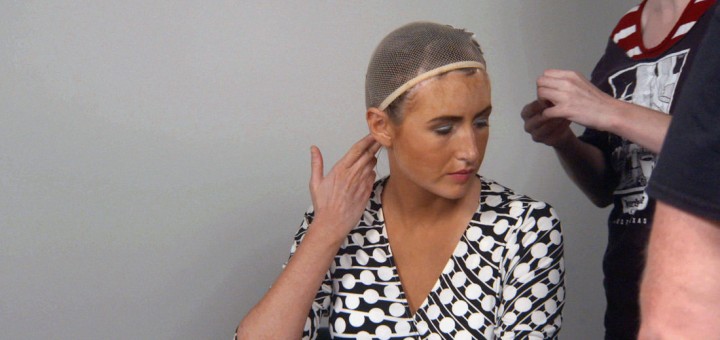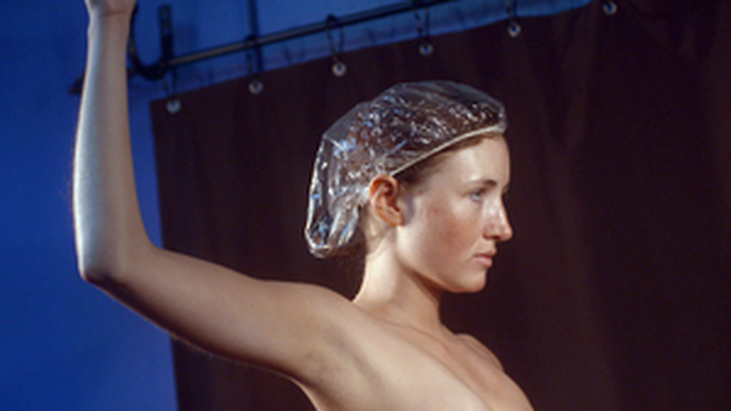 Robert Greene's Kate Plays Christine is a stunning accomplishment, a documentary that is part psychological thriller, part sociological study, delivering a one-of-a-kind piece of filmmaking that cements Robert Greene as one of the most essentially contemporary filmmakers working today. Centered around Actress Kate Lyn Sheil as she prepares to portray the role of Christine Chubbuck, a real-life news reporter who killed herself on national television in 1974, Robert Greene's Kate Play Christine offers a detailed study into the creative process, one that divulges into psychological thriller due to Kate Lyn Sheil's dedication to her craft. Kate Plays Christine is a piece of filmmaking that feels continually evolving, starting off as a intricate examination of an actresses creative process, one that finds Kate diving into the gruesome details of this woman's suicide as she attempts to understand and relate to this character. The deeper and deeper Kate Lyn Sheil digs into the details of the life of Christine, the more she becomes protective of this woman, intent on making sure that the integrity of this woman's life is not stomped upon due to the toxic details of her death. As the film progresses, Greene beautifully juxtaposes the details of Christine Chubbuck's life, namely her depression and perspective of the world, with that of Kate Lyn Sheil's own insecurities, drawing parallels between these two individuals, each of which has their own moments of anxiety, depression, and pain. While the psychological study of Kate Lyn Sheil is the driving force between the narrative of this fascinating documentary, Robert Greene's Kate Plays Christine elevates itself well beyond merely an in-depth look at the creative process of an actress, exposing what Christine Chubbuck's life and death says about society itself, one in which humanities penchant for saliciousness and violence comes first, with empathy placing a distant second. The film exposes our collective culture's infatuation with tragedy and death, examining how little reflection is spent on deconstructing the the pain and anguish that led someone to commit such an heinous act, detailing how we as a society still have a long way to go when it comes to dealing with depression. Neither fetishising nor glorifying this startling act of suicide, Robert Greene's film simply exposes how Christine Chubbuck gained more notoriety and attention in death than life, exposing the true tragedy that exists in a sensationalist-fueled society which only shows an interest in a lonely and depressed individual after they commit the ultimate act of surrender. Kate Plays Christine argues that the salaciousness of the news, how it focuses on "the blood and guts" is simply a biproduct of a much larger disease in society, one that still fails to acknowledge that depression and pain are ingrained in the very essence of the human experience and must be treated accordingly. Through Kate's research of this deeply tragic story Robert Greene's film becomes quite angry as it reaches towards its conclusion, loudly expressing the importance of perpetually having a conversation about and acknowledging the far-reaching nature of depression in our society, recognizing that it's something that can happen to anyone given the cold, harsh reality of the world itself. The final shot of the film only emphasizes this brooding anger, a scene which finds Kate Lyn Sheil in character as Christine Chubbock carrying out the final sequence, the actual suicide. Emotionally ravaged, Kate Lyn Sheil angrily states she can't go through with filming the suicide, screaming that she doesn't want to give the audience the violence they want to see. The sequence is startling, meta, and jarring, beautifully exhibiting the angry rally cry of the filmmakers, pleading for us as a culture, society, and species to always see the importance of life over death, pleading that we stop glamorizing the deaths of these tragic stories, hoping we instead can focus on their lives when lived and attempt to understand how someone can fall so deeply into despair. Haunting, illuminating, transfixing, and profound, Robert Greene's Kate Plays Christine is an extremely well-made piece of documentary filmmaking which further establishes Robert Greene as one of the essential contemporary filmmakers working in non-fiction.
0 Comments
Leave a Reply. |
AuthorLove of all things cinema brought me here. Archives
June 2023
|



 RSS Feed
RSS Feed
